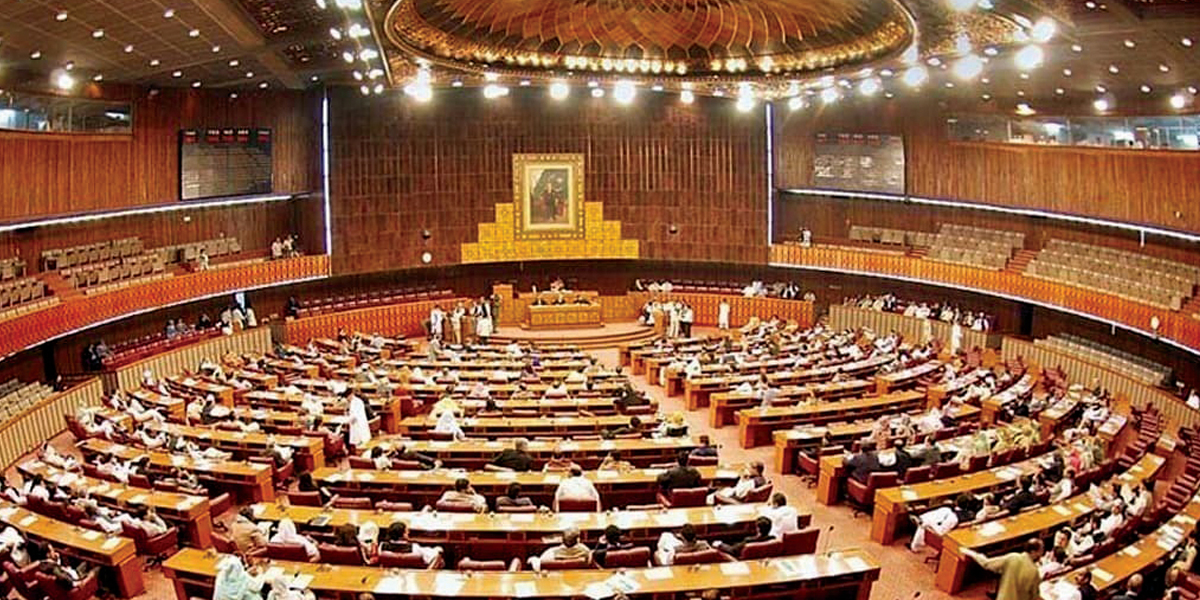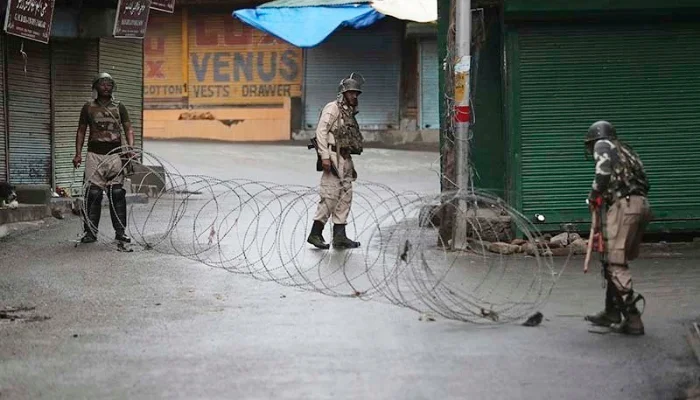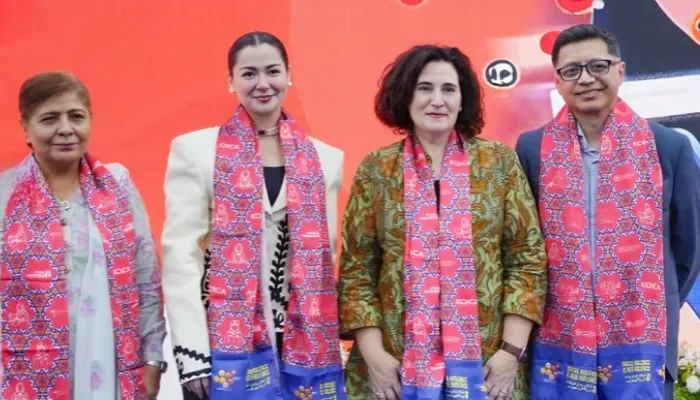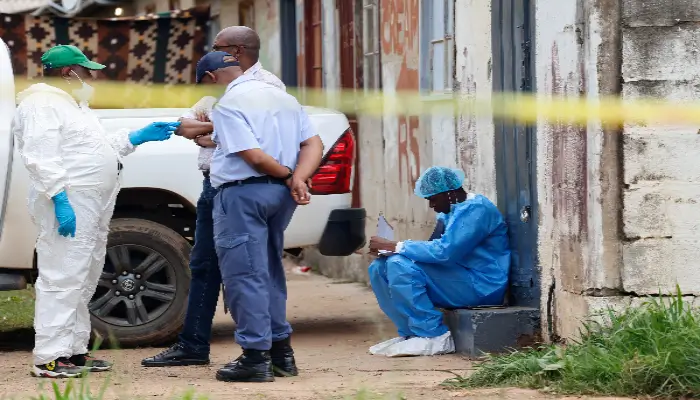Of late, a lot has been happening on the political front. Some rifts are surfacing in the rank and file of the sitting government, and the opposition continues to express its commitment to give the regime a tough time. However, it also seems reluctant to exercise a no-confidence move against the government.
For the time being it seems that the Opposition has shelved plans of a no-confidence motion against either the Premier or the Speaker, although individuals within the Opposition keep hinting they will exercise this option. And during a recent media talk at the Parliament House in Islamabad, Chairman Pakistan Peoples Party (PPP) Bilawal Bhutto Zardari stated that there is a strong possibility that the Opposition parties can work together as the PDM has also come round to the PPP’s position with regard to bringing a no-confidence motion against the government. “If the PDM is ready to back down from its stand on the Prime Minister’s resignation and adopt our no-confidence motion, we can work together,” he said.
Recently there have been several major developments in Pakistan’s political arena, including the passage of highly debated bills in the National Assembly, comprising the Supplementary Finance Bill and the bill pertaining to the State Bank of Pakistan (SBP) aiming to provide unprecedented autonomy to the central bank.
Before the legislation of these bills there was a lot of talk about the removal of the government by the Opposition. However, it seems that the passage of these bills has strengthened the government.
On an amendment moved by the Opposition benches during the legislation on one of these bills — the Supplementary Finance Bill — the government beat the opposition in a head count by 18 votes. During proceedings in the National Assembly on January 13, 2022, the government secured 168 votes while the opposition could only manage 150 votes. Thus the amendment moved by Bilawal Bhutto Zardari was rejected.
The government knew well that the mini finance bill was very important, so soon after the introduction of this bill in the National Assembly, the session was prorogued. It was a matter of real concern for the government that it had been failing to meet the quorum of the House, making the passage of this bill a particularly tough undertaking. Then another session of the House was called for the passage of the Supplementary Finance Bill, the bill on the SBP and some other bills. Failing to have the Supplementary Finance Bill passed would have practically been a no-confidence motion against the movement. So despite tough resistance from the opposition benches, the government had its day in the House in the matter of these bills.
Nevertheless, despite vigorous efforts, the government could not prove that it still holds a simple majority in the House, although it did show that it holds more numbers than the Opposition. The government requires 172 votes from a House of 342 members to show its simple majority. So the Opposition would need the support of 172 lawmakers to make a no-confidence motion successful.
Currently the ruling Pakistan Tehreek-e-Insaf (PTI) holds a total of 156 seats in the National Assembly, including 123 on general seats, 28 on reserved ones, and five seats for minorities. It also has the support of its allies in the House, including the Muttahida Qaumi Movement Pakistan (MQM-P) with seven seats, the Balochistan National Party (BNP) with four seats, the Grand Democratic Alliance (GDA) with three, and the Awami Muslim League Pakistan and Jamhoori Watan Party (JWP) with one seat each in the National Assembly. This gives the ruling party around 176 seats in regard to the vote count.
Meanwhile, the Pakistan Muslim League Nawaz holds the maximum number of seats on the Opposition benches, with a total of 86 lawmakers. The PPP holds 56 seats, and the Muttahida Majlis-e-Amal Pakistan (MMAP) possesses 15 seats.
There are also four independents MNAs in the House, including Mohsin Dawar, Ali Wazir, Ali Nawaz Shah and Muhammad Aslam Bhotani. Generally, Ali Nawaz Shah and Bhotani support the government in the House, while Dawar and Wazir are regarded as strict critics of the government.
In the numbers game there is not much of a difference between the government and the Opposition. A shift of stance of the parties currently supporting the government could thus change the dynamics of the political situation altogether.
During the ongoing session of the House, in a rare happening, Usama Qadri of the MQM-P marked his protest by pointing to the quorum and arguing that representatives of Karachi are not being given the floor to talk on issues being faced by Karachiites. These members of the Opposition routinely point out the quorum to stall the government from going ahead with its agenda pertaining to the House.
That aside, the PTI has also engendered criticism from its own party members. Noor Alam Khan, a PTI MNA from Peshawar chastised the party from the floor of the House during the ongoing session, saying that everything would be normal in the country if the names of the legislators on the front three rows of the treasury benches were placed on the Exist Control List (ECL).
Recently Prime Minister Imran Khan faced another awkward situation during a meeting of the parliamentary party of the ruling alliance, when Defence Minister Pervez Khattak confronted him by complaining about neglect of the Khyber Pakhtunkhwa (KP) by the Centre. However, later the defence minister retracted his statement.
As matters stand, although the PPP seems to be in favour of bringing about an in-house change in the House, it has not yet succeeded in getting the PDM’s nod on this score. Meanwhile, the PPP is all set to stage a long march against the government commencing February 27. The party contends the march will be the last nail in the coffin of the Imran Khan-led government, which has made the lives of common people hell.
The PDM is also gearing up to hold a long march against the government in March.
So its small victories in the House notwithstanding, should the government be worried?The record high inflation level has already registered a tangible fallout: the ruling party even could not acquire the numbers to hold on to its seats in the local bodies’ elections in KPK, which is supposed to be its stronghold. And earlier it faced similar results in most of the by-elections in the country.

















